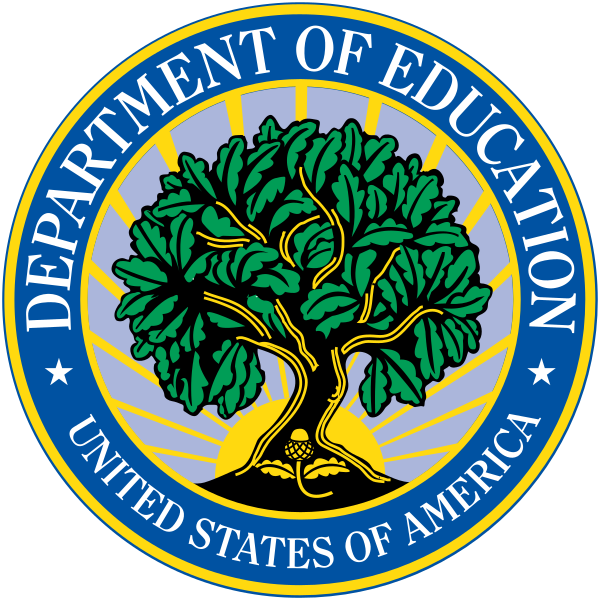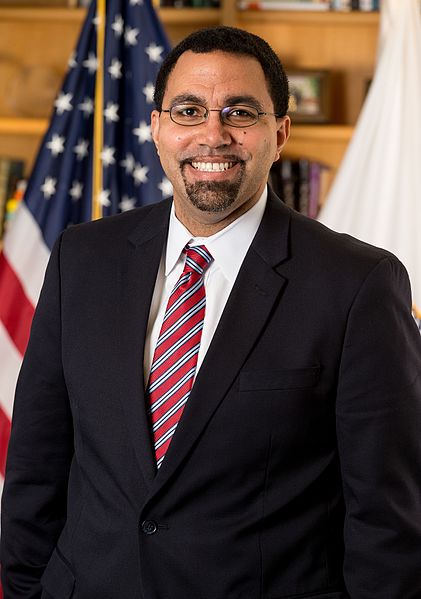
Editor’s Picks
ACICS, The Accreditor of Corinthian Colleges and ITT Technical Institute, Has Risen from the Dead
By Henry Kronk
April 05, 2018
Secretary of Education Betsy DeVos. Source: Wikimedia Commons.
This is the first in a three-part series on the Accrediting Council for Independent Colleges and Schools.
Early April is traditionally a time of rebirth in the Christian calendar. On Tuesday, Secretary of Education Betsy DeVos perpetuated that myth by announcing she would seek further review for recognition of the college accrediting body known as the Accrediting Council for Independent Colleges and Schools (ACICS). The decision comes at the hands of Washington D.C. District Court Judge Reggie B. Walton, who remanded an earlier decision by former Secretary of Education Stephen King that stripped ACICS of Department of Education (DoE) recognition.
“As the court ordered, we will fairly consider all of the facts presented and make an appropriate determination on ACICS’s petition,” DeVos said in a release.
Pending DoE review, ACICS will retain their ability to accredit institutions of higher education.
Once, ACICS Went Under for Turning a Blind Eye on Fraudulent For-Profits. Now It’s Back.
In the world of college accreditation, ACICS holds a notorious reputation. Before their DoE recognition was stripped in 2016, they were the biggest for-profit accreditation body in the U.S. They have previously accredited some of the most egregious for-profit fraudsters in recent memory. The organization gave their blessing to both ITT Technical Institute and Corinthian Colleges, two for-profit colleges that were forced to close after Obama administration regulators found that they were carrying out illegal recruitment tactics, misrepresenting their graduates’ success, and failing to adequately prepare their students for jobs in their respective fields of study.

When the Obama administration began to look into the for-profit education sector in 2010, they uncovered some shocking data.
According to a DoE release, “Students at for-profit institutions represent 11 percent of all higher education students, 26 percent of all student loans and 43 percent of all loan defaulters. The median federal student loan debt carried by students earning associate degrees at for-profit institutions was $14,000, while the majority of students at community colleges do not borrow. More than a quarter of for-profit institutions receive 80 percent of their revenues from taxpayer financed federal student aid.”
Among the for-profit education sector, ITT Technical Institute and Corinthian Colleges were some of the worst performing institutions.
Accreditation in the U.S.
In the U.S., the DoE is not responsible for overseeing institutions of higher education. Instead, they rely on roughly 75 independent agencies to accredit colleges and make sure they’re following the rules. DoE policy delegates the responsibility to the secretary of education to decide which organizations can accredit and which cannot.
DeVos’ decision to reevaluate ACICS is surprising, but not for the reasons you might think. The current education secretary is a proponent of for-profit education. She and her family have invested in the sector, and she has stocked her cabinet with numerous industry insiders and former lobbyists. In other words, DeVos’ decision to reinstate ACICS as a recognized accreditor isn’t uncharacteristic per se. It’s strange, however, because right around one year ago, she formally supported bringing them down.
While the former presidential administration worked hard to bring for-profit fraudsters to task, after the November 2016, these companies saw a chance. One of the last actions of then-Secretary of Education John King Jr. was to strip ACICS of their DoE blessing to accredit in December of 2016. In early 2017, ACICS filed a motion to regain the DoE’s blessing. In April, DeVos upheld King’s decision and released a memo supporting her decision. The 45-page document is damning to say the least.
The ACICS Does Not Deny Wrongdoing

The biggest slice of evidence DeVos uses to support King’s decision is that, throughout various hearings in 2016, ACICS routinely admitted that it was not following the rules:
“Throughout the course of the administrative review process, ACICS admitted that it did not demonstrate compliance with numerous regulatory criteria. During the NACIQI [National Advisory Committee on Institutional Quality and Integrity] hearing, ACICS admitted that it was not seeking recognition as a fully compliant agency; rather, ACICS sought only that NACIQI recommend that the Department exercise its discretionary authority under 20 U.S.C. § 1099b(l)(B) to extend conditional recognition to ACICS.”
In other words, ACICS in the past few years has never disagreed with the DoE opinion (along with that of dozens attorneys general) that it failed to comply with at least 16 federal policies. Instead, they have asked that the DoE grant them a twelve-month extension so that they can change their ways.
A History of Non-Compliance
Oddly enough, this isn’t the first time this has happened. Accrediting agencies need to reapply for federal recognition every 5 years. ACICS last applied in 2011, at which time they were found to be non-compliant. Again, they appealed for a twelve-month period to get their act together, and they were granted recognition in 2013.
Even during this period when they were supposedly revamping their accreditation system, they still betrayed some serious oversight. For example, they officially required universities to maintain a minimum retention rate of 75%. In 2013, Wisconsin’s Education Approval board found that Everest College, a former holding of Corinthian Colleges, had a collective retention rate of 40%. In other words, every year, 60% of Everest students dropped out. And yet, ACICS took no action against them.
In terms of ACICS’ noncompliance, that’s not even the tip of the iceberg. So—why did a D.C. district judge remand the December 2016 decision to strip them of federal recognition? The body reviewing ACICS’ case failed to account for a full 36,000 pages of evidence that the organization provided. That’s a violation of the Higher Education Act (HEA), and a violation of the Administrative Procedures Act (APA).
There is much, much more to this story. Two articles will follow this one. They will summarize the full (known) extent of ACICS’ wrongdoing and describe why they have been given a second chance.









No Comments